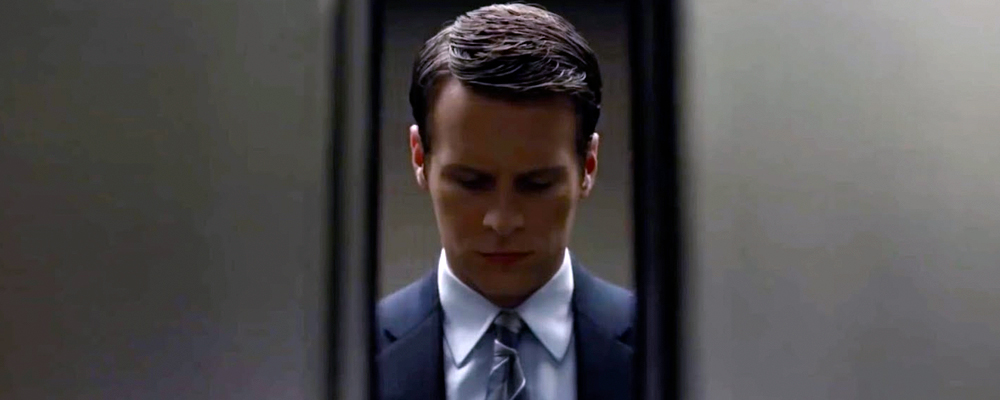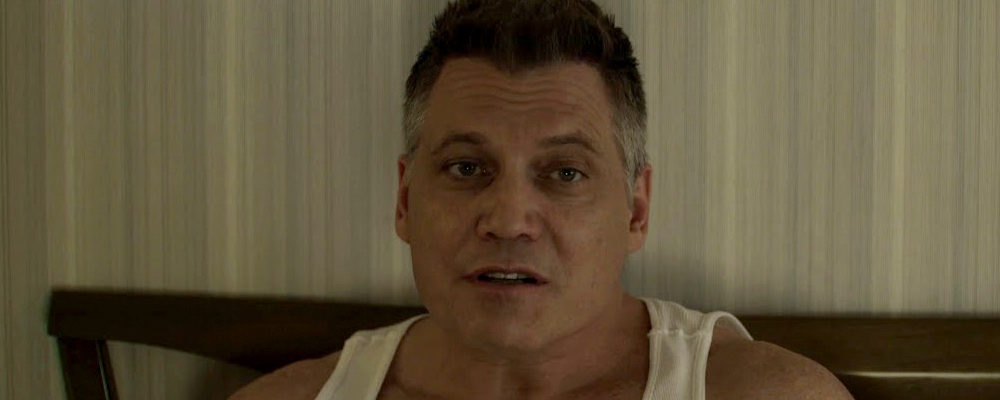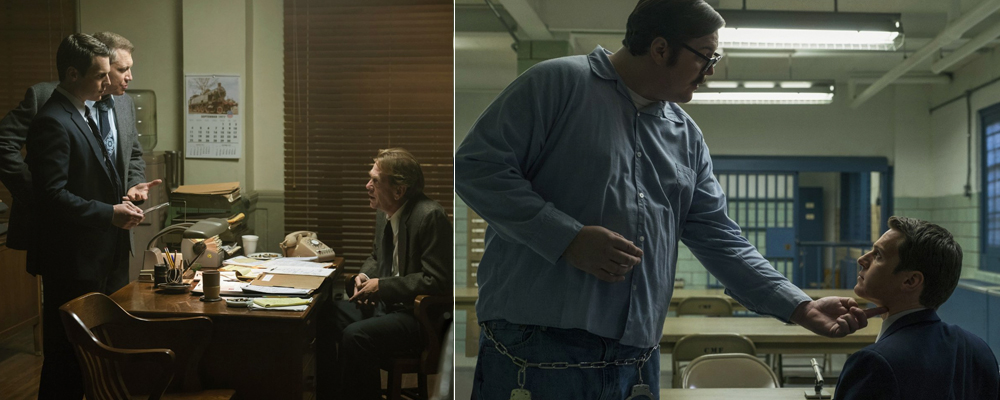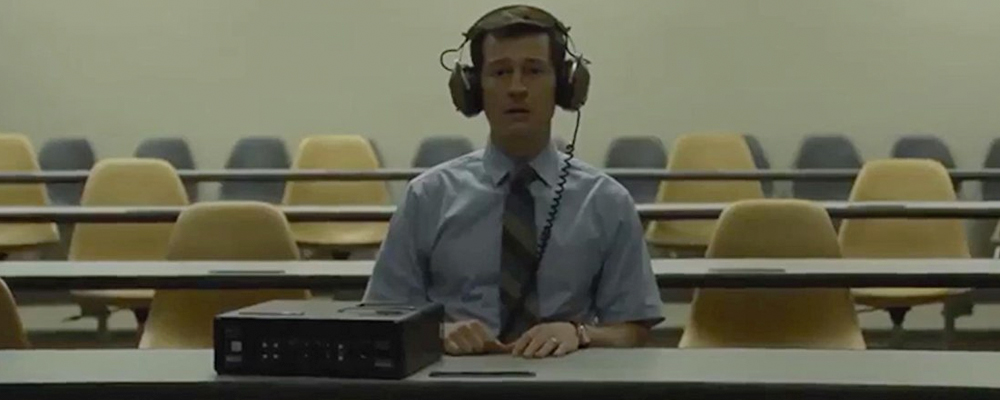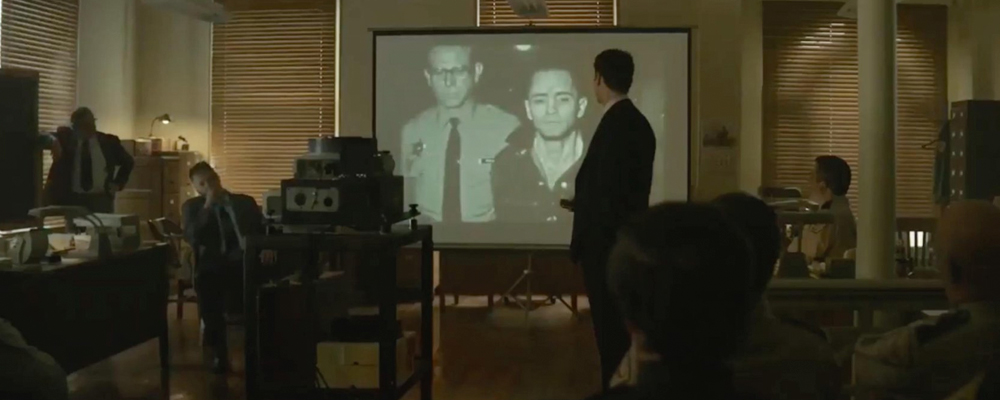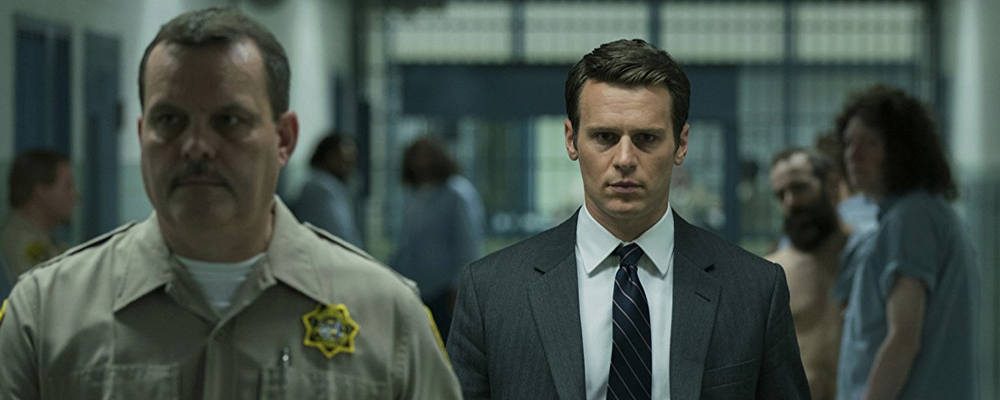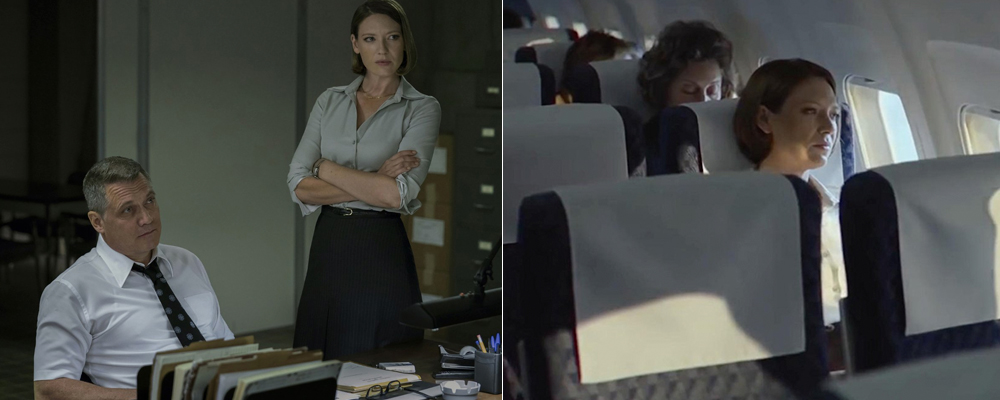David Fincher’s ‘Mindhunter’ Is a Captivating and Chilling Binge
Alex Aronson
With crime procedurals “CSI,” “Law and Order,” “NCIS,” among many others, densely populating the television landscape, “Mindhunter” offers a healthy alternative. Created by Joe Penhall and executive produced by David Fincher and Charlize Theron, the series is not so much a who-done-it, but rather why-done-it. After a lengthy two-hour exposition, the mission of the series becomes clear. The focus is to uncover the real motive behind why someone chooses to kill. The chills don’t derive from the horrific murders, but more so the psychology behind it – providing a fascinating angle.
The year is 1977, and the term serial killer is rather new. California’s Manson murders and New York City’s Son of Sam have captured the attention of America and the FBI. Holden Ford (Jonathan Groff), a 29-year-old FBI agent, is more interested in motive, not murder, and discovering patterns in the human psyche. Skeptical of Ford’s fascination with “backroom” frowned upon practices, Unit Chief Shepard (Cotter Smith) pairs Ford up with Bill Tench (a brilliant Holt McCallany), from the Behavioral Science Unit. The two travel the country researching criminal minds. Large flashy text, which encompasses the screen, indicates their location.
Just as quickly as Shepard pairs the two men together, he threatens to shut them down. Tench delivers the premise of the series, “How can we get ahead of crazy, if we don’t know how crazy thinks?” This statement is enough to convince Shepard otherwise, and they continue their studies within the basement of the Behavioral Science Unit.
Ford is young and enthused, which creates a vigorous balance between him and his weathered partner, Tench. Dedicated to his work, Holden manages to catch the attention of a progressive brunette, Debbie (Hannah Gross). Groff portrays the character with a raw sense of earnest ambition. He builds enough empathy for the role that by the time hour 10 arrives, and his work begins to chip away at his health, relationship, and mentality, the viewer genuinely feels sympathetic.
When interviewing murderers, Ford’s experience working as a hostage negotiator comes into play. His number one piece of advice that he teaches the students in his hostage negotiation class is to listen, and listen he does as the murderers reveal their dark and demented reasoning for committing such heinous acts.
After their insights lead to an actual arrest, the duo onboard another member onto the team, Dr. Wendy Carr (Anna Torv), who provides supportive academic expertise. Dynamics prove rocky as it becomes difficult to substantiate their findings in a court of law and much is at risk. As the team delves further into the work, the intensity of their findings increasingly grows harder to bear as the season progresses. Their inability to be taken seriously by the higher-ups is frustrating, albeit understandable for the period.
Executive producer David Fincher is very involved with his second Netflix venture, “Mindhunter.” The 10-episode inaugural run comes after five successful seasons of Fincher’s “House of Cards,” which put Netflix originals on the map and introduced the streaming giant’s qualitative programming initiative.
Fincher expertly directs the first two episodes along with the closing two episodes of the season. It is appropriate that the famed director open and close the show, but his precise and meticulous touch is ever-present throughout. The quality never dips at the assured assistance of Andrew Douglas (“The Amityville Horror”) and Asif Kapadia (“Amy”). Harking back to Fincher’s other crime mysteries, “Seven,” “Zodiac,” and “Gone Girl,” “Mindhunter” is stylistically much of the same. Cinematic in its presentation, bleak pallets, clean shots, and steady camerawork make up much of the frame. Fincher has done it again. By the end of the 10-hour run, the viewer will be craving more. Luckily, a second season has already received a green light.
“Mindhunter” season 1 premiered Oct. 13 on Netflix.

